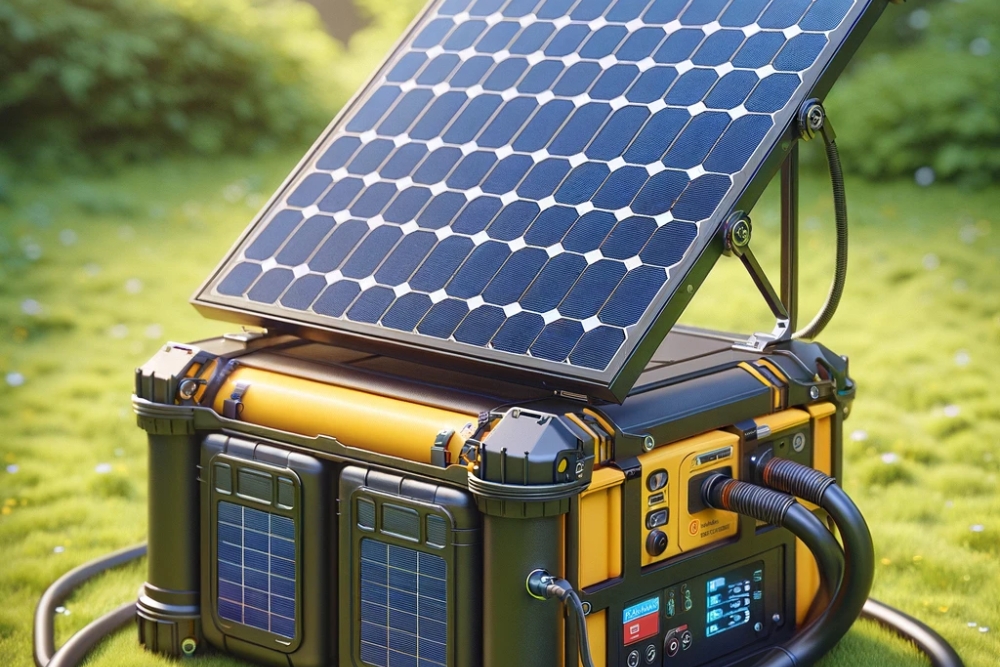Power Generators: Understanding Types, Applications, and Efficiency
Power generators are essential devices that convert various forms of energy into electrical power. These versatile machines play a crucial role in providing backup electricity during outages, powering remote locations, and supporting a wide range of industrial and residential applications. This article explores the different types of power generators, their uses, and the growing importance of solar power generators in today's energy landscape.

What are the main types of power generators?
Power generators come in several forms, each designed for specific purposes and environments. The most common types include:
-
Diesel generators: Known for their reliability and high power output, diesel generators are widely used in industrial settings and as backup power sources for large buildings.
-
Natural gas generators: These generators offer cleaner operation compared to diesel and are often used in residential and commercial applications where natural gas lines are readily available.
-
Portable generators: Typically gasoline-powered, these smaller units are popular for camping, outdoor events, and emergency home backup power.
-
Solar power generators: Harnessing energy from the sun, these environmentally friendly generators are gaining popularity for both off-grid and grid-tied applications.
-
Wind turbines: While less common for individual use, wind generators are an important source of renewable energy on a larger scale.
Each type of generator has its own advantages and limitations, making the choice dependent on specific power needs, fuel availability, and environmental considerations.
How do solar power generators work?
Solar power generators have become increasingly popular due to their eco-friendly nature and ability to provide clean energy. These systems typically consist of several key components:
-
Solar panels: Photovoltaic cells that convert sunlight into direct current (DC) electricity.
-
Charge controller: Regulates the flow of electricity from the solar panels to the battery, preventing overcharging.
-
Battery bank: Stores the electricity generated by the solar panels for later use.
-
Inverter: Converts the stored DC electricity into alternating current (AC) power, which is used by most household appliances and electronics.
Solar power generators can range from small portable units for camping to large-scale systems capable of powering entire homes or businesses. They offer the advantage of silent operation and minimal maintenance, making them an attractive option for those seeking energy independence or reduced reliance on the grid.
What are the applications of power generators?
Power generators serve a wide array of purposes across various sectors:
-
Emergency backup: Hospitals, data centers, and critical infrastructure rely on generators to maintain operations during power outages.
-
Construction and outdoor events: Portable generators provide electricity for tools, lighting, and sound systems in locations without access to the power grid.
-
Off-grid living: Solar power generators and other renewable energy systems enable people to live comfortably in remote areas without traditional utility connections.
-
Industrial operations: Large-scale generators support manufacturing processes, mining operations, and other industrial activities that require substantial and consistent power supply.
-
Recreational use: Smaller generators power RVs, boats, and camping equipment for outdoor enthusiasts.
-
Supplemental power: In areas with unreliable grid electricity, generators can provide consistent power for homes and businesses.
The versatility of power generators makes them indispensable in many aspects of modern life, from ensuring business continuity to enhancing outdoor experiences.
How efficient are modern power generators?
The efficiency of power generators has improved significantly over the years, driven by technological advancements and increasing environmental concerns. Efficiency in power generators is typically measured by the amount of useful electricity produced compared to the energy input from fuel or other sources.
Diesel generators, for example, can achieve efficiency rates of up to 40-45% in optimal conditions. Natural gas generators often have slightly lower efficiency rates but offer cleaner emissions. Solar power generators, while not traditionally measured in the same way, have seen dramatic improvements in photovoltaic cell efficiency, with some modern panels converting over 20% of sunlight into electricity.
Factors affecting generator efficiency include:
-
Fuel quality
-
Proper sizing for the intended load
-
Regular maintenance
-
Operating conditions (temperature, altitude, etc.)
-
Load management
Manufacturers continue to innovate, developing more efficient engines, better fuel management systems, and improved energy conversion technologies to maximize output while minimizing resource consumption.
What are the advantages of solar power generators?
Solar power generators offer several distinct advantages over traditional fuel-based generators:
-
Renewable energy source: Solar generators harness the sun’s energy, providing a clean and inexhaustible power supply.
-
Low operating costs: Once installed, solar generators have minimal ongoing fuel expenses, reducing long-term costs.
-
Silent operation: Unlike diesel or gas generators, solar systems operate quietly, making them ideal for residential use and noise-sensitive environments.
-
Low maintenance: With fewer moving parts, solar generators require less frequent maintenance compared to fuel-powered alternatives.
-
Scalability: Solar systems can be easily expanded by adding more panels and batteries to meet growing energy needs.
-
Environmental benefits: Solar generators produce no direct emissions, contributing to reduced carbon footprints and improved air quality.
While initial costs for solar power generators can be higher than traditional generators, the long-term benefits and decreasing prices of solar technology make them an increasingly attractive option for both residential and commercial applications.
In conclusion, power generators play a vital role in our energy infrastructure, providing essential backup power and enabling off-grid operations. As technology advances, the efficiency and versatility of these systems continue to improve, with solar power generators emerging as a promising solution for sustainable energy generation. Whether for emergency preparedness, outdoor activities, or reducing reliance on the grid, power generators offer a range of options to meet diverse energy needs.




